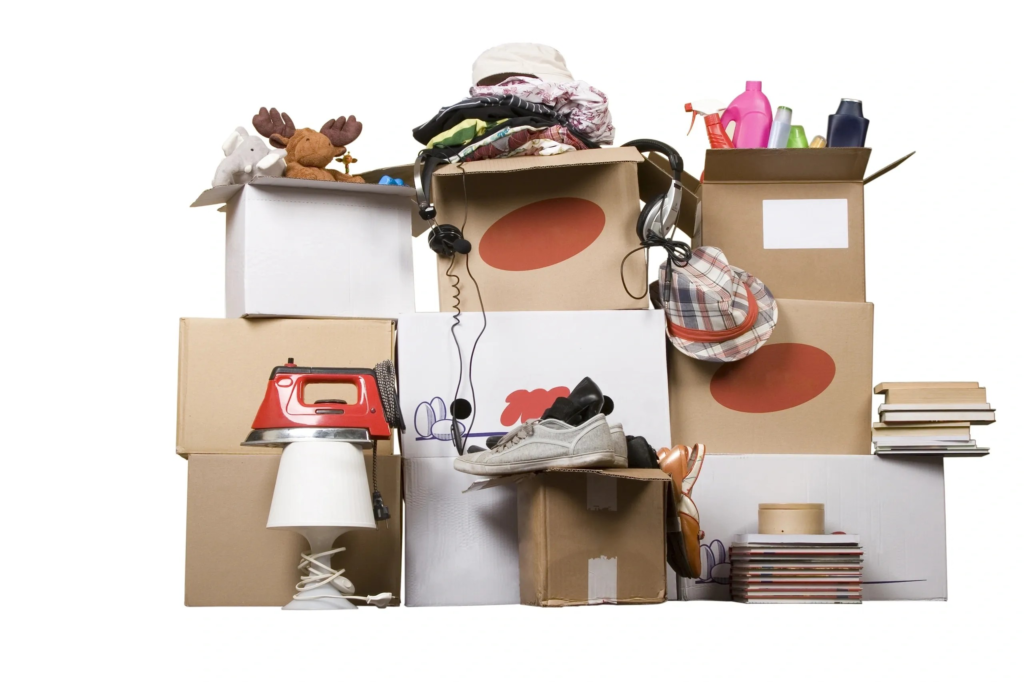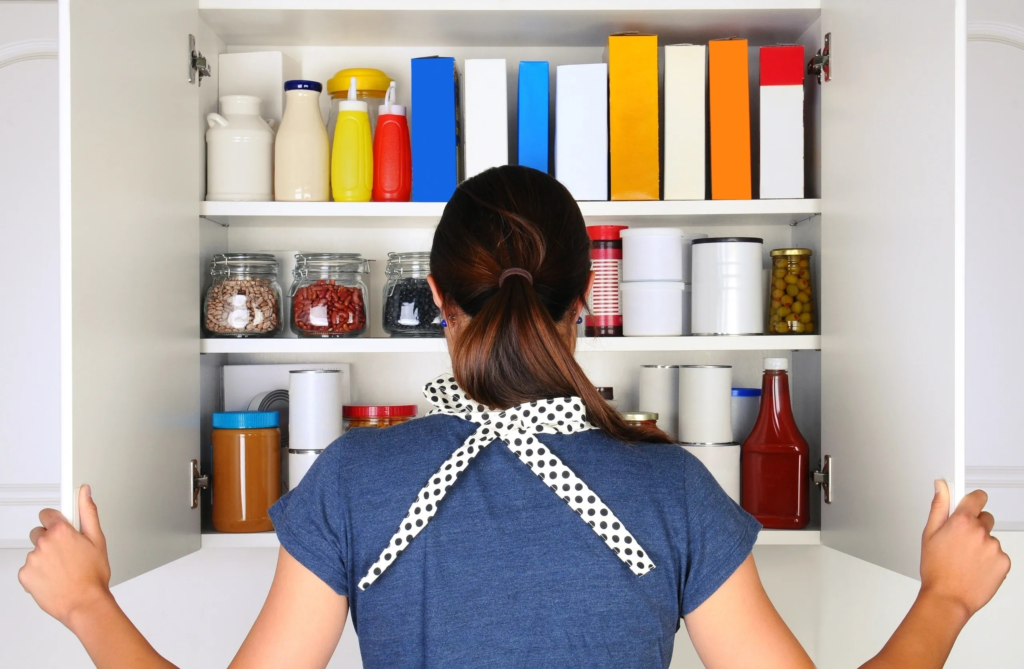Moving Smarter, Not Harder: Decluttering Tips for a Fresh Start

“Moving Smarter, Not Harder: Decluttering Tips for a Fresh Start” Moving is a whirlwind. If you’re buying or selling a home, it can feel like an emotional roller coaster. Trust me, I know—I moved recently after living in the same place for 22 years. But while moving can be stressful, it also offers a unique opportunity: the chance to decide. The Power of Decisions Clutter is often the result of indecision. We keep things because we have the space, or because deciding what to do with them feels overwhelming. Maybe you’ve tried to declutter before, but the process brought up uncomfortable emotions, so you stopped. Avoiding decisions might feel easier in the moment, but it only kicks the “decision can” down the road, where it piles up into even bigger challenges. Moving is your chance to break that cycle. It’s time to embrace this opportunity, face the decisions, and clear the clutter. The Cost of Avoidance I’ve spoken with many people who regret moving their clutter into their new home. Surrounded by boxes, they feel overwhelmed. It’s uncomfortable, but it’s also a chance to grow. The good news is that moving provides multiple opportunities to declutter. If you missed one, don’t worry—there’s always another just around the corner. Key Decluttering Opportunities When You Move Lessons from My Own Move Having recently gone through a move, I decluttered at each of these phases, and it felt incredible to enter my new space with less stuff. Deciding what to keep made me feel empowered—my belongings now serve me, not the other way around. Avoiding Decision Fatigue Decluttering can be mentally exhausting. Decision fatigue is real, especially if you’ve been putting off decisions about your stuff. If you’ve ever felt drained after sorting through your belongings, you’re not alone—it’s hard work for your brain. To combat decision fatigue: Tips for Tackling the Declutter Remember: Decluttering Is Ongoing Decluttering isn’t a one-and-done task. Life brings new stages, and with them, new items. It’s okay to have clutter—what matters is being intentional about regularly letting go. And let’s not beat ourselves up over having clutter. Instead, celebrate the power of deciding and letting go. You’ve got this! Whether you’re moving across town or across the country, use this opportunity to shed what no longer serves you. It’s not just about clearing space in your home—it’s about creating space in your life for what truly matters.
The Big Move: A Step-by-Step Guide to Decluttering and Transitioning with Ease

Low interest rates and the desire for a fresh start have inspired many to make this summer their time to move. For those who have lived in the same home for years, the challenge is clear: decades of accumulated belongings to sort through. If there’s one thing I’ve learned from homeownership, it’s this: we hold on to items we don’t need simply because we have the space to store them. Why? Because making decisions about our belongings—especially letting go—can feel daunting. Here are some common fears that keep us stuck: These fears often lead to overwhelm, avoidance, and, ultimately, a lot of unnecessary baggage—both physical and emotional. Few life events provide as natural an opportunity to purge and simplify as a move. Whether you’re downsizing or just seeking a fresh start, tackling the process methodically can make all the difference. Steps to Prepare for a Smooth Transition Moving doesn’t have to be overwhelming. With the right mindset and preparation, you can reduce stress and ensure a smoother process. Here’s how: 1. Find a Realtor You Trust A knowledgeable and reliable realtor can be your guiding light during this process. They offer expertise, connections to resources, and insights into what buyers look for. From movers and handymen to donation centers, their network can save you time and energy. 2. Stage Your Home for Success Your home may feel perfect to you, but buyers will see it differently. Staging helps create a neutral, inviting space that appeals to a broader audience. Think of it as presenting your home in its best light, rather than the cozy comfort you’ve grown accustomed to. 3. Create a Comprehensive Plan Moving isn’t just about packing boxes. It involves managing financing, paperwork, decluttering, repairs, and logistics. Outline all tasks and their timelines, making sure to identify dependencies. For example, you can’t donate items until you’ve sorted and packed them. 4. Declutter with Intention Most of us accumulate far more than we need, and moving provides the perfect opportunity to lighten the load. Choose a decluttering method that works for you: Either way, dedicate time to assessing every space—even hidden areas like closets and attics. This process saves time and money by ensuring you only move what truly matters. 5. Start Packing with the Least-Used Items Begin with seasonal decorations, spare bedrooms, or items in storage. This early progress builds momentum and allows you to focus on daily-use items closer to the move. 6. Label Everything Clearly Each box should include the name of the room it’s destined for and a note if it contains fragile items. Clear labeling ensures smoother unpacking and reduces the risk of broken belongings. 7. Ask for Help Don’t try to do it all alone. Assess how much your time and sanity are worth. Hiring professionals like organizers, movers, or handymen can alleviate stress and free you up to focus on other tasks. 8. Keep Perspective Moving can be chaotic, but most challenges can be resolved with patience. Remember, the little things that go wrong are just that—little things. Maintaining a positive attitude and flexibility can make all the difference. The Power of a Fresh Start Moving is more than a logistical challenge—it’s an opportunity to reset. It’s a chance to let go of items that no longer serve you and embrace a simpler, more intentional lifestyle. By tackling the process with a plan, clear priorities, and the right support, you’ll find that moving isn’t just about changing your address; it’s about creating a space that supports the life you want to live. So, don’t box up that old volleyball set you haven’t touched in years. Let go, lighten up, and look forward to the new chapter ahead.
What EXACTLY does a Professional Organizer do?

The Organizing industry is truly a hidden gem. I couldn’t believe I didn’t know the industry existed until a couple years ago. Of course, I was actively avoiding places like The Container Store. I knew if I set foot in there it would be all over. Poverty would follow. I knew I would love it and I’d go broke in 6 months. Truly. I had never been in the store until after I decided to go into this profession. And yes, I love it. In the crazy world we live in, there are endless ways to help our clients. Most folks are at full, or over, capacity trying to keep all the plates spinning with their day-to-day lives. How can they keep up? How can they learn all the processes and tricks to manage their lives more efficiently and reduce their stress? How do they know how to declutter a closet efficiently and thoroughly? Enter the organizing profession. You may have wondered how I ended up in this industry. The Business Analyst role did not entirely fit me. The analytical aspect as well as creating order was suitable. Mostly I was motivated with activities such as improving processes, streamlining and documenting procedures, and organizing online data. Then I had a conversation with a friend. We were talking about projects around the house and I was saying that I was doing some organizing and said something to the effect of, “I wish I could do this for a living! ” She said, “You can. That profession exists.” WHAT??!!!! (mind blown) And life has never been the same. During my research, I discovered there are several different national and international organizations that exist to support this industry. Who knew? One of their primary missions of these organizations is to get the word out that this industry exists and how our expertise changes lives. My research initially landed me at the NAPO (National Association of Professional Organizers) website. Here, as you can imagine, I relished every word and thought I discovered the “mother ship” for my people. Believe it or not, this is worldwide phenomenon. Other countries have national organizations as well like Canada, the UK – even if they spell it “organise”, and of course Japan (as many of us are familiar with Marie Kondo and her book about tidying – which really just means organizing.) There is an organization that supports organizers who are helping clients that are challenged with chronic disorganization. There is even an organization that seeks to unite the various national organizations worldwide called the International Federation of Professional Organizing Associations (IFPOA). Who knew, right? When I decided to become a Professional Organizer, I really didn’t understand the depth of the industry I was jumping into. My decision was based on my business-world skills, my natural bent (thanks Mom & Dad!), and life experiences of figuring stuff out while I managed my life and household. The industry thrilled me but I had to learn exactly what all is involved in helping others with their challenges. I found that there is A LOT more to this career than that meets the eye. The reach of our industry knows no bounds. It reminds me of physicians and how they have many specialties. Many organizers are generalists, but most also have specialties as well: hoarding, closet installs, garages, moves, residential, photos, ADHD/OCD, transition, time management, kitchens, eco-friendly, new moms….the list goes on and on. It’s funny that when you have an aptitude for something, you originally think that everyone must think like you do. I distinctly remember an experience of organizing with someone before I “turned pro”. I was thoroughly enjoying myself feeling pumped as I was getting more organized. I passed them in the hall and said, “Isn’t this fun?” to which they snarled, “No, it’s torture!” What? You may be thinking the same thing as you’re reading this. I get it. You don’t think organizing is fun. You hate it and find any excuse to do something different. We are all created differently. Thank goodness! When I have to do things involving say money, I look for all the distractions I can find. Squirrel! What Do Organizers Do?Some people think Organizers just put things away –like somebody’s mom (sorry I just had to). Others think we are administrative assistants, some think we plan events. The Merriam-Webster dictionary defines the word organize as “to arrange or order things so that they can be found or used easily and quickly : to put things into a particular arrangement or order”. That just barely touches on the industry. Currently, there are two main types of Organizers: Residential & Business. Business organizing focuses on positively impacting businesses. Taking on goals such as gaining efficiencies, streamlining workflow, improving paper and electronic files, and coaching are typical offerings. Residential focuses on the home. For the purposes of this blog, we’re focusing on residential organizing. I recently read an article about getting organized that basically told people the key is, “Things need to go where they need to go.” Well yes, but this doesn’t address the challenge many have in setting up an effective system of where things go. It doesn’t address busy lifestyles, multiple people in the same space, special needs, feelings of being overwhelmed or stuck. I could go on and on. I was really saddened by this person’s lack of understanding and compassion for the challenges of getting organized and staying organized. It reminds me of my bitmoji (app where the avatar looks like you). This brings up a basic philosophy in this industry: No judgment. Compassion and understanding are the tenants on which our industry is built. Most Organizers number one goal is to help. Does a personal trainer look down on someone 20 lbs overweight who wants to get healthier? Of course not or you wouldn’t hire them. Organizing is the same way. We exist to bring about desired change, to help our clients achieve their goals, to watch the excitement as their world expands and the fog lifts.